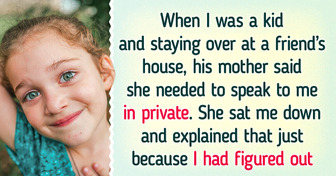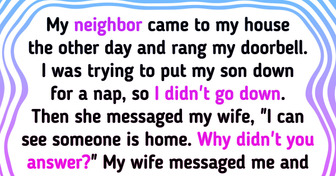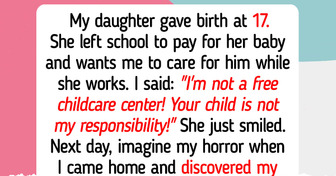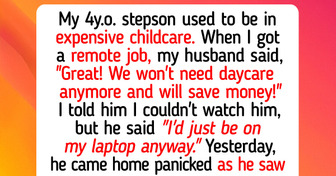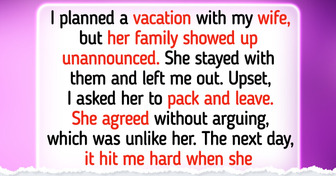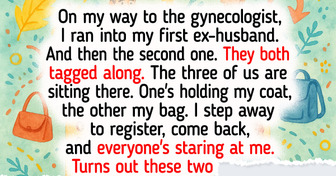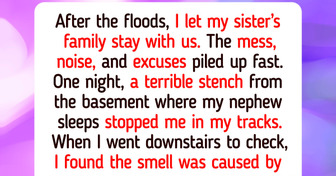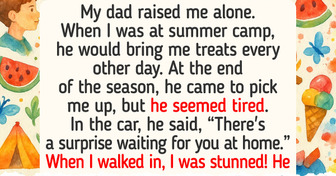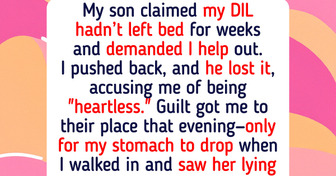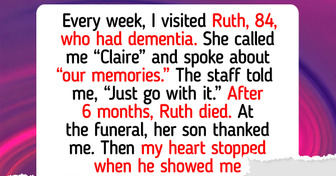My DIL Broke My House Rules—I Made Her Face the Consequences
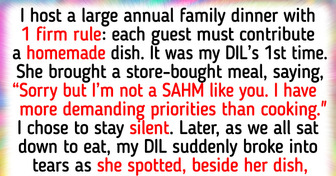
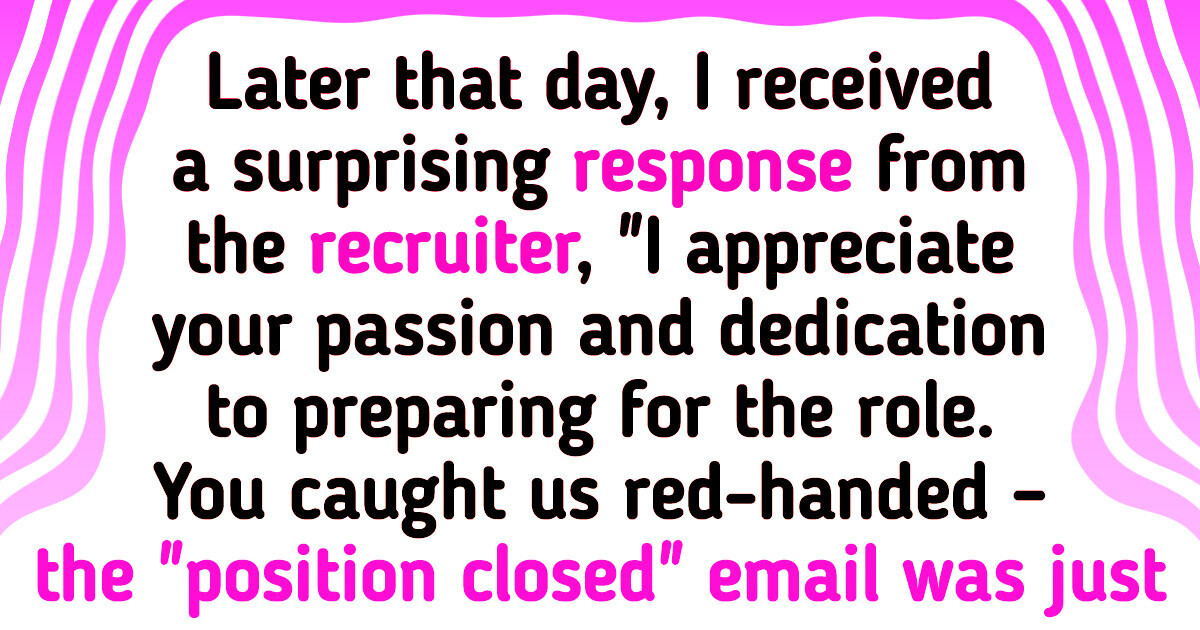
Recently, we received an intriguing narrative from John, who embarked on a quest to secure his dream job but instead found himself on an unexpected journey of personal growth and discovery. Initially driven by the desire to land a coveted position, John's pursuit took an unforeseen turn, leading him down a path brimming with valuable life lessons and enriching experiences.
Sometimes, it takes multiple attempts and trials to secure the best job opportunities for ourselves. Each experience teaches valuable lessons that refine our approach and increase our chances of success.

John had long dreamed of working for a prestigious company, and when the opportunity arose, he eagerly applied for the position. After preparing meticulously for an entire week, he attended the interview, where the recruiter seemed genuinely interested in his background and skills. The recruiter even expressed hope to see him again, filling John with optimism.
However, a week ago, John received a disappointing email from the recruiter, informing him that the position was no longer available. This unexpected news was a blow, as John had invested so much time and effort into preparing for what he thought was his dream job.
This morning, still feeling the sting of the rejection, John decided to check a job site. To his surprise and frustration, he found the same position reposted just two days ago. Feeling confused and misled, he decided to send a response to the recruiter:
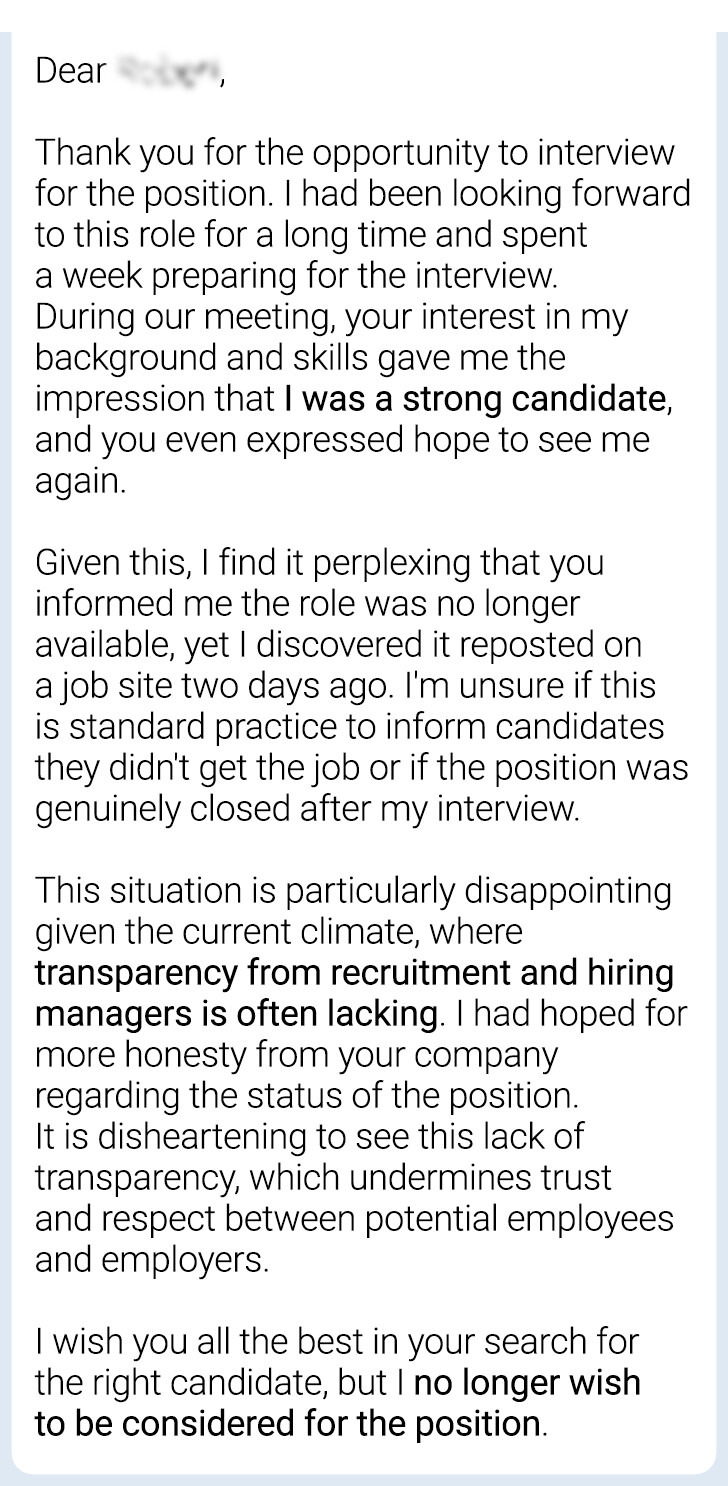
Another week passed, and John had almost forgotten about the situation, continuing his search for other job opportunities. Then, unexpectedly, he received a response from the recruiter he had interviewed with.
The letter was polite but took him by surprise. It revealed that they had been planning to invite him for a second interview and were impressed with his qualifications. However, the reason why the position was closed left John in frustration.
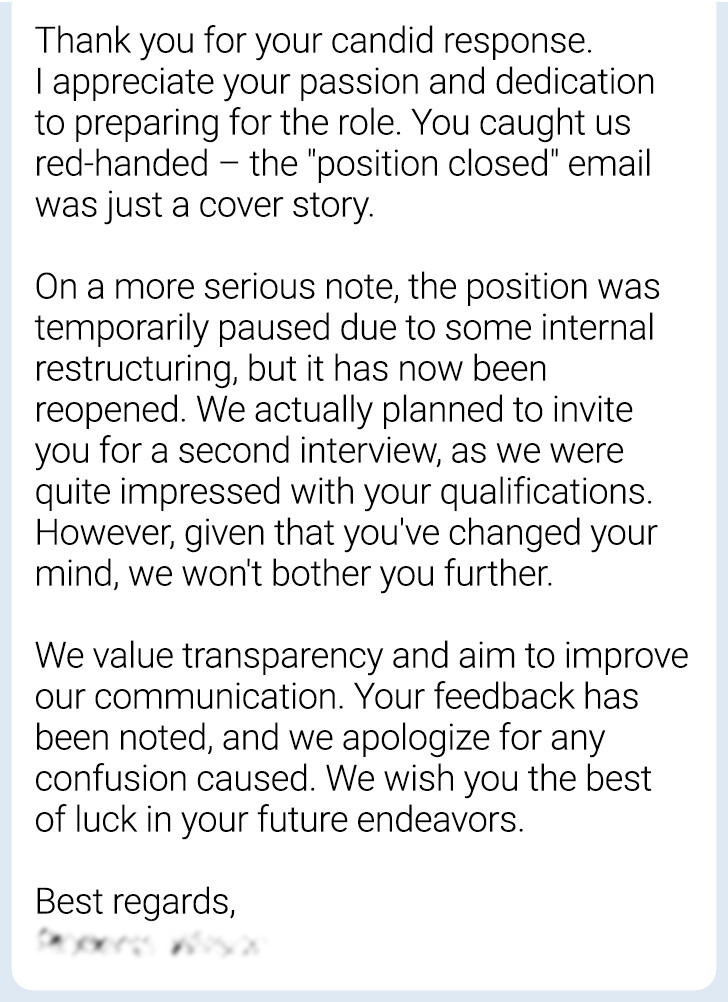

Now, John feels frustrated and realizes he lost a chance because of his emotional letter. He regrets letting his initial disappointment cloud his judgment and wishes he had handled the situation more calmly.
The response from the recruiter, indicating their interest in a second interview, only amplifies his regret. He can't help but think about what might have been if he had been more patient. This experience has taught him the importance of keeping his emotions in check when dealing with professional setbacks.

Receiving a job rejection can be tough, and it's tempting to delete the email and move on. However, sending a thoughtful response is beneficial for your career. Treat your interview as a networking opportunity; following up can help build positive relationships with employers.
Most rejected applicants don't respond, so your polite reply will make you stand out. It reflects well on you and could benefit you if the hired candidate declines, leaves soon, or if another position opens up. Hiring managers often prefer considering recent candidates over starting the process anew, so your response could keep you in mind for future opportunities.

It's crucial to continuously improve both your hard and soft skills to succeed in getting a job, as these competencies make you a well-rounded and competitive candidate. However, it's equally important to stay resilient and not give up, even in the face of setbacks, as persistence often leads to eventual success.

